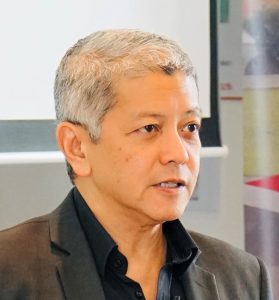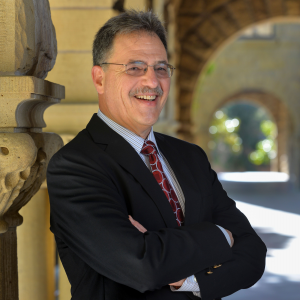Panel Discussion
What Matters More: Democracy or Economic Growth
Zoom Webinar
Wednesday, October 27, 2021 | 8:00 PM – 9:00 PM EDT
Does democracy cause more economic prosperity and growth? This question dates back to Plato and Aristotle’s debate regarding which form of government brings more political and economic gains to society. While the United States has sought to promote democracy and liberal values abroad for decades with a belief that democracy will lead to economic prosperity, many countries around the world do not agree with that. Should democracy or economic prosperity be the measurement of success for countries? Which should come first in countries’ priority list, especially developing countries? Join us on Wednesday, October 27 at 8:00 PM EDT to hear the answer from our distinguished speakers, Professor Danny Quah, Li Ka Shing Professor in Economics and Dean at the Lee Kuan Yew School of Public Policy, National University of Singapore, and Dr. Larry Diamond, Senior Fellow at the Hoover Institution and at the Freeman Spogli Institute for International Studies (FSI) and a Bass University Fellow in Undergraduate Education at Stanford University
COULDN’T ATTEND OUR EVENT? Don’t worry. You can watch it below
SPEAKERS:
Professor Danny Quah
 Danny Quah is Li Ka Shing Professor in Economics and Dean at the Lee Kuan Yew School of Public Policy, NUS. His research on inequality and income mobility characterises the range of experiences across economies to suggest that a single narrative on inequality is unlikely to be correct or helpful. His work on world order takes an economic approach to international systems, studying the supply and demand of world order: what international system do the world’s superpowers wish to provide; what world order does the global community need?
Danny Quah is Li Ka Shing Professor in Economics and Dean at the Lee Kuan Yew School of Public Policy, NUS. His research on inequality and income mobility characterises the range of experiences across economies to suggest that a single narrative on inequality is unlikely to be correct or helpful. His work on world order takes an economic approach to international systems, studying the supply and demand of world order: what international system do the world’s superpowers wish to provide; what world order does the global community need?
Quah is a Commissioner on the Spence-Stiglitz Commission on Global Economic Transformation and serves on the Executive Committee, International Economic Association; the Advisory Board, LSE IDEAS; the Eminent Advisory Council of the UNDP Bureau for Asia-Pacific; and the World Economic Forum’s Global Future Council for Geopolitics.
He is the author of “The Global Economy’s Shifting Centre of Gravity”.
Dr. Larry Diamond
 Larry Diamond is a senior fellow at the Hoover Institution and at the Freeman Spogli Institute for International Studies (FSI) and a Bass University Fellow in Undergraduate Education at Stanford University. He is also professor by courtesy of Political Science and Sociology at Stanford. He leads the Hoover Institution’s programs on China’s Global Sharp Power and on Taiwan in the Indo-Pacific Region. At FSI, he leads the Program on Arab Reform and Democracy, based at the Center on Democracy, Development and the Rule of Law, which he directed for more than six years. He also co-leads with (Eileen Donahoe) the Global Digital Policy Incubator, based at FSI’s Cyber Policy Center. He is the founding coeditor of the Journal of Democracy and also serves as senior consultant at the International Forum for Democratic Studies of the National Endowment for Democracy. His research focuses on democratic trends and conditions around the world and on policies and reforms to defend and advance democracy. His latest edited book (with Orville Schell), China’s Influence and American Interests (Hoover Press, 2019), urges a posture of constructive vigilance toward China’s global projection of “sharp power,” which it sees as a rising threat to democratic norms and institutions. He offers a massive open online course (MOOC) on Comparative Democratic Development through the edX platform and is now writing a textbook to accompany it.
Larry Diamond is a senior fellow at the Hoover Institution and at the Freeman Spogli Institute for International Studies (FSI) and a Bass University Fellow in Undergraduate Education at Stanford University. He is also professor by courtesy of Political Science and Sociology at Stanford. He leads the Hoover Institution’s programs on China’s Global Sharp Power and on Taiwan in the Indo-Pacific Region. At FSI, he leads the Program on Arab Reform and Democracy, based at the Center on Democracy, Development and the Rule of Law, which he directed for more than six years. He also co-leads with (Eileen Donahoe) the Global Digital Policy Incubator, based at FSI’s Cyber Policy Center. He is the founding coeditor of the Journal of Democracy and also serves as senior consultant at the International Forum for Democratic Studies of the National Endowment for Democracy. His research focuses on democratic trends and conditions around the world and on policies and reforms to defend and advance democracy. His latest edited book (with Orville Schell), China’s Influence and American Interests (Hoover Press, 2019), urges a posture of constructive vigilance toward China’s global projection of “sharp power,” which it sees as a rising threat to democratic norms and institutions. He offers a massive open online course (MOOC) on Comparative Democratic Development through the edX platform and is now writing a textbook to accompany it.
Diamond’s book, Ill Winds: Saving Democracy from Russian Rage, Chinese Ambition, and American Complacency, analyzes the challenges confronting liberal democracy in the United States and around the world at this potential “hinge in history,” and offers an agenda for strengthening and defending democracy at home and abroad. A paperback edition with a new preface was released by Penguin in April 2020. His other books include: In Search of Democracy (2016), The Spirit of Democracy (2008), Developing Democracy: Toward Consolidation (1999), Promoting Democracy in the 1990s (1995), and Class, Ethnicity, and Democracy in Nigeria(1989). He has also edited or coedited more than forty books on democratic development around the world, most recently, Dynamics of Democracy in Taiwan: The Ma Ying-jeou Years.
During 2002–03, Diamond served as a consultant to the US Agency for International Development (USAID) and was a contributing author of its report, Foreign Aid in the National Interest. He has also advised and lectured to universities and think tanks around the world, and to the World Bank, the United Nations, the State Department, and other governmental and nongovernmental agencies dealing with governance and development. During the first three months of 2004, Diamond served as a senior adviser on governance to the Coalition Provisional Authority in Baghdad. His 2005 book, Squandered Victory: The American Occupation and the Bungled Effort to Bring Democracy to Iraq, was one of the first books to critically analyze America’s postwar engagement in Iraq.
Among Diamond’s other edited books are Democracy in Decline?; Democratization and Authoritarianism in the Arab World; Will China Democratize?; and Liberation Technology: Social Media and the Struggle for Democracy, all edited with Marc F. Plattner; and Politics and Culture in Contemporary Iran, with Abbas Milani. With Juan J. Linz and Seymour Martin Lipset, he edited the series, Democracy in Developing Countries, which helped to shape a new generation of comparative study of democratic development.
We are trying our best to keep our community informed about foreign affairs, and we would appreciate if you can support us to keep this virtual briefing series going. No amount is too small.

